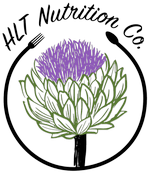Answers at Your Fingertips:
Frequently Asked Questions on HLT Nutrition
If you have any additional questions or concerns, please don’t hesitate to contact us. We’re always here to help you achieve your health and wellness goals.
We offer many different services, including nutritional counseling, meal prep planning, customized food boxes, and more!
No, if you have a chronic health condition such as obesity, diabetes, high blood pressure, asthma, anxiety, etc. you can refer yourself to our program. Please contact project food box at (949) 673-0783 to get started today.
Yes! We will take all of your dietary restrictions and allergies into account when putting together your meal plan.
Absolutely! That’s what we’re here for! Call us at (760) 996-4717.
A balanced diet is one that contains a variety of foods from all food groups in the right proportions to provide the nutrients and energy needed for optimal health. Keep in mind that not everyone’s the same, so it’s important to customize a diet that fits your personal needs.
The amount of protein a person needs depends on factors such as age, sex, weight, and activity level. As a general guideline, adults should aim for 0.8 grams of protein per kilogram of body weight per day. Athletes and individuals engaged in strength training may require higher amounts of protein.
No, carbohydrates are an important source of energy for the body and should not be eliminated from the diet. However, it is important to choose complex carbohydrates such as whole grains, fruits, and vegetables, and to limit simple carbohydrates such as sugary drinks and processed foods.
It is generally recommended that individuals get their nutrients from whole foods rather than supplements. However, some people may need supplements to meet specific nutritional needs or to address deficiencies. It is important to consult with a healthcare provider or registered dietitian before taking any supplements.
A healthy way to lose weight is to make gradual and sustainable changes to your diet and lifestyle. This may include reducing calorie intake, increasing physical activity, and choosing nutrient-dense foods that are lower in calories. It is important to avoid fad diets or extreme weight loss measures that can be harmful to your health.
When eating out, it is important to choose menu items that are lower in calories, saturated fat, and sodium. Look for items that are grilled, baked, or steamed, and avoid items that are fried or covered in sauces or cheese. You can also ask for modifications such as dressing on the side or no added salt.
Yes, it is possible to enjoy dessert and still maintain a healthy diet. The key is to choose desserts that are lower in calories and added sugars and to consume them in moderation. You can also try making healthier versions of your favorite desserts by using alternative sweeteners or incorporating fruits and nuts.
The amount of water a person needs depends on factors such as age, sex, weight, and activity level. As a general guideline, it is recommended to drink at least 8 cups (64 ounces) of water per day. However, individual needs may vary and it is important to drink enough water to stay hydrated throughout the day.
Latest articles
When to Seek Professional Nutritional Counseling for Weight Management
Weight management can feel frustrating when you’re doing your best—eating “better,” cutting back, or staying active—yet results still feel slow or inconsistent.
Why Personalized Nutrition Plans Are Crucial for Managing Chronic Conditions
When you’re managing a chronic condition, generic nutrition tips often fall short. What works for one person may not work for another, especially when symptoms, medications, lifestyle, and lab results vary.
How Project FoodBox Collaborates with Dietitians to Improve Community Health
Community health improves when people can access both nourishing food and reliable guidance on how to use it.
When to Consider a Senior Meal Program to Support Aging Loved Ones
As your loved one gets older, everyday tasks can start to take more effort—including cooking and eating regular meals.




